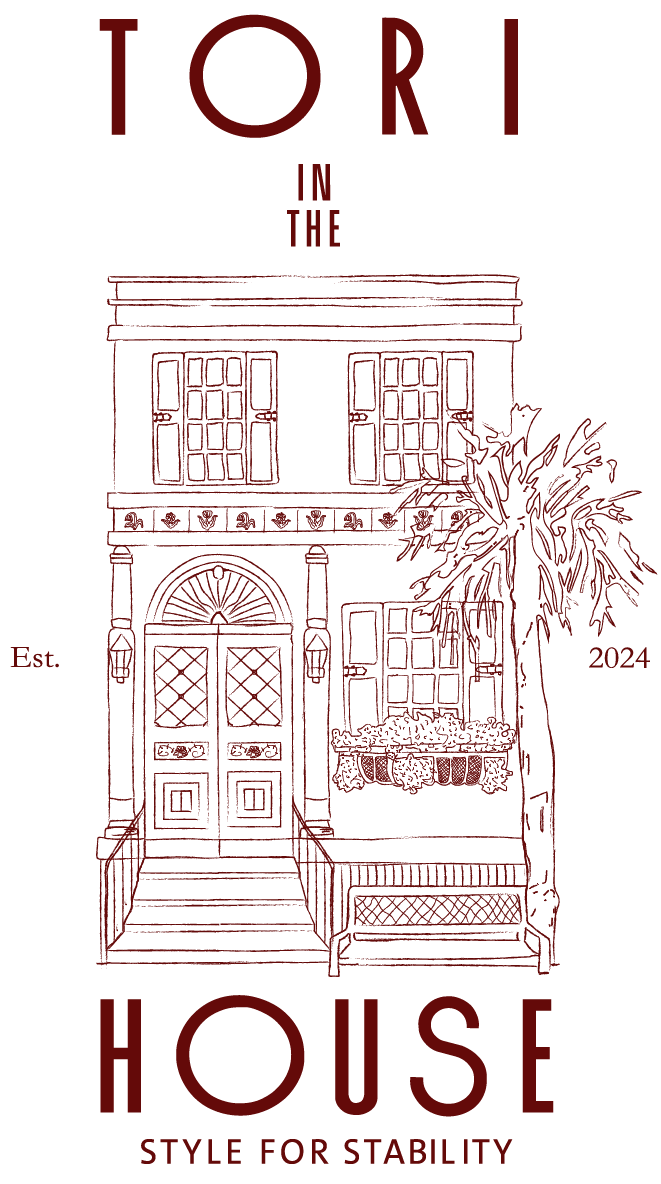Frequently asked Questions
-
At Tori in the House, our mission is to empower stability and healing through thoughtful, trauma-informed interior design. We transform houses into personalized homes to help individuals and families thrive in their new chapter of life.
We believe in creating spaces that feel like home—places of stability, serenity, and dignity. By furnishing each home with new, open box, and lightly imperfect furniture, we provide thoughtfully tailored designs to help stabilize and reflect each client’s style and needs. Our trauma-informed style quiz allows clients to express themselves, while our cultural lens ensures designs reflect the unique identities of those we collaborate with.
-
We partner with individuals and families transitioning out of homelessness into permanent supportive housing. There’s no direct application process—our services are available through referrals from trusted partner agencies like shelters and human services organizations.
-
We don’t provide housing. Instead, we collaborate with individuals who have already secured housing through partner agencies or have received a housing voucher.
Did you know permanent supportive housing boasts an impressive 90% retention rate? With Tori in the House, we’re hoping that number soars even higher by creating thoughtfully designed, trauma-informed spaces that foster stability, dignity, and serenity.
-
We collaborate with clients to transform their new houses into homes they’re proud of! Using a trauma-informed approach, we provide new, open box, and lightly imperfect furniture.
Our personalized intake process and style quiz allow us to design spaces that help stabilize and reflect each client’s identity and culture.
Since many of the unhoused are people of color, we thoughtfully incorporate a cultural lens, moving beyond Eurocentric design norms.
Every detail is chosen with care to create spaces that feel warm, safe, stable, and uniquely theirs.
-
The seed was planted for Tori in the House at a young age. Learn more about Tori’s journey on our Our Foundation page.
-
We only accept new, open box, and lightly imperfect items directly from furniture and home goods retailers. While we DO NOT accept household used donations, we focus on keeping high-quality items out of landfills and into homes where they can make a lasting impact.
Personalizing each home with a trauma-informed design approach means we carefully select items in partnership with furniture retailers. Did you know that over 42% of the unhoused population have a disability—whether it’s physical, mental, or otherwise? At Tori in the House, we thoughtfully incorporate this understanding into our designs.
This ensures the pieces we use are not only beautiful, high-quality, and functional, lasting our clients for years to come as they begin this exciting new chapter, but also free of anything that could be triggering.
We don’t accept general furniture donations to limit waste, uphold our commitment to sustainability, and maintain a curated, thoughtful approach for our clients.
If you’re a furniture retailer or would like to become a Furnishing Futures Collaborator, email us here.
We do accept gift cards to furniture retailers. Please email us here to contribute and receive a tax-deductible receipt.
-
We’d love to have you join The Home Makers! Whether it’s helping build furniture or lending a hand on Go Home Day (move-in day), there are plenty of ways to get involved. Stay tuned for updates on our Donate & Collaborate page.
-
We’re based in Los Angeles, CA, and partner with agencies serving the greater LA area.
-
Become part of the Neighborhood! Sign up for our email updates and follow us on social media to stay connected, learn about upcoming events, and see the impact of your support.
-
To receive our services, you must be referred by one of our partner agencies or your case manager/social worker.
If your social service agency isn’t yet a partner, we’d be happy to work with them! Have your caseworker reach out to us at info@toriinthehouse.org to learn how they can join our network.
-
At Tori in the House, we strive to practice ethical storytelling—sharing stories in a way that respects, protects, and empowers the individuals we work with. Each client’s journey is unique, and we are committed to honoring their privacy and dignity.
Some clients are transitioning out of dangerous situations, such as domestic violence, and their safety is our top priority. By limiting the use of identifiable images or covering faces, we help protect their anonymity while still sharing the incredible impact of our work in a thoughtful and respectful way.
